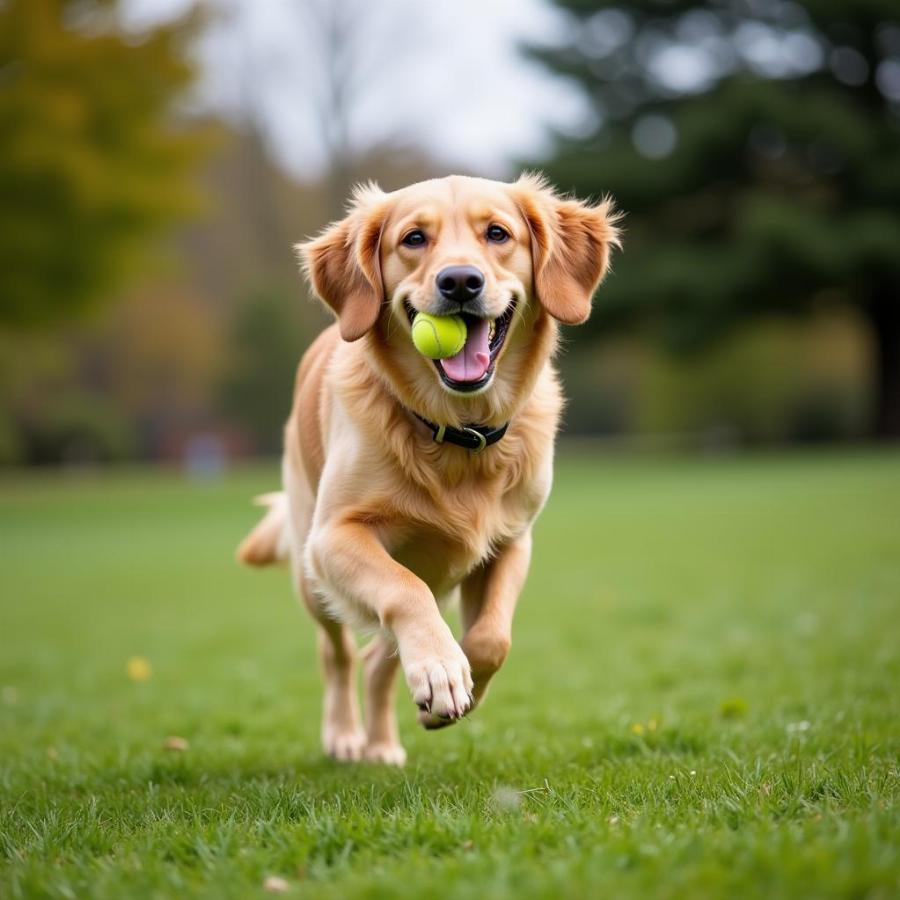“A dog named Duke.” The name rolls off the tongue, conjuring images of a loyal companion, a furry friend to share adventures with. But what if “Duke” is more than just a name, but the beginning of your journey as a dog owner? Whether you’ve already welcomed Duke into your home or are considering bringing a canine companion into your life, this guide will equip you with the knowledge and resources to make it a pawsitive experience.
Choosing the Right Duke for You
Before you start picturing life with a slobbery tennis ball retriever or a dignified walking companion, remember that every Duke is unique. Just like people, dogs have distinct personalities, energy levels, and care requirements.
- Lifestyle: Do you live in a bustling city apartment or a spacious countryside home? Your living space plays a crucial role in determining the best breed for your lifestyle.
- Activity Level: Are you an avid hiker or a homebody who enjoys cozy nights in? Matching your dog’s energy to yours prevents behavioral issues and ensures both of you can lead happy, fulfilling lives together.
- Allergies: Consider hypoallergenic breeds if you or a family member suffer from allergies.
- Breed Research: Take the time to research different breeds and their temperaments. Don’t choose a dog solely based on looks.
 Golden Retriever playing fetch in the park
Golden Retriever playing fetch in the park
Welcoming Duke Home: Essential Supplies
Bringing Duke home is an exciting time, but preparation is key. Ensure you have these essentials:
- High-Quality Dog Food: Consult your veterinarian for recommendations tailored to Duke’s age, breed, and activity level.
- Food and Water Bowls: Opt for stainless steel or ceramic options for durability and ease of cleaning.
- Collar, Leash, and ID Tag: Duke’s safety is paramount. Choose a sturdy collar and leash, and personalize his ID tag with your contact information.
- Comfortable Bed: Everyone deserves a cozy place to rest.
- Crate: A crate provides Duke with a sense of security and aids in housebreaking.
- Toys: From chew toys to interactive puzzles, toys provide mental stimulation and prevent boredom.
Training Your Duke: Building a Bond That Lasts
Training isn’t just about teaching commands; it’s about establishing a deep bond of trust and communication with your furry friend.
- Positive Reinforcement: Reward-based training, using treats and praise, is the most effective and humane way to train your Duke.
- Consistency is Key: Dogs thrive on routine. Establish a consistent feeding, walking, and training schedule.
- Socialization: Expose Duke to various sights, sounds, people, and other dogs early on to prevent fear and anxiety later in life.
- Patience and Understanding: Just like humans, dogs learn at their own pace. Be patient, understanding, and celebrate even the smallest victories.
Duke’s Health: A Lifelong Commitment
Duke’s well-being depends on proactive healthcare and regular veterinary checkups.
- Vaccinations: Protect Duke from preventable diseases with timely vaccinations.
- Parasite Prevention: Fleas, ticks, and heartworms are more than just nuisances; they pose serious health risks. Consult your veterinarian about preventative medications.
- Dental Care: Just like us, dogs need regular dental care to prevent periodontal disease.
- Nutrition and Exercise: A balanced diet and regular exercise are crucial for Duke’s physical and mental health.
Living Your Best Life with Duke
Having a dog named Duke, or any name for that matter, is a rewarding experience. The love, loyalty, and joy a dog brings into your life are immeasurable. Remember, responsible dog ownership is an ongoing commitment. By providing Duke with love, care, and a stimulating environment, you’re setting the stage for a beautiful, lifelong friendship.
FAQs About Owning a Dog Named Duke
Q: How do I choose a good name for my dog?
A: Consider your dog’s personality, appearance, and your own preferences.
Q: How can I help my dog adjust to a new home?
A: Create a safe and comfortable space, introduce him to his new routine gradually, and provide plenty of love and reassurance.
Q: What are some signs of illness in dogs?
A: Loss of appetite, lethargy, vomiting, diarrhea, coughing, sneezing, difficulty breathing, or changes in behavior can all be signs of illness.
Q: When should I take my dog to the vet?
A: It’s always best to err on the side of caution. If you notice any unusual symptoms or have any concerns, schedule an appointment with your veterinarian.
Looking for More Dog-gone Good Advice?
For more information about caring for your canine companion, explore other helpful resources on Beaut Dogs. Beaut Dogs is your go-to source for everything dog-related, from breed information to training tips and product reviews. When in doubt, don’t hesitate to reach out to us! Email: [email protected] for personalized assistance from our team of dog lovers.